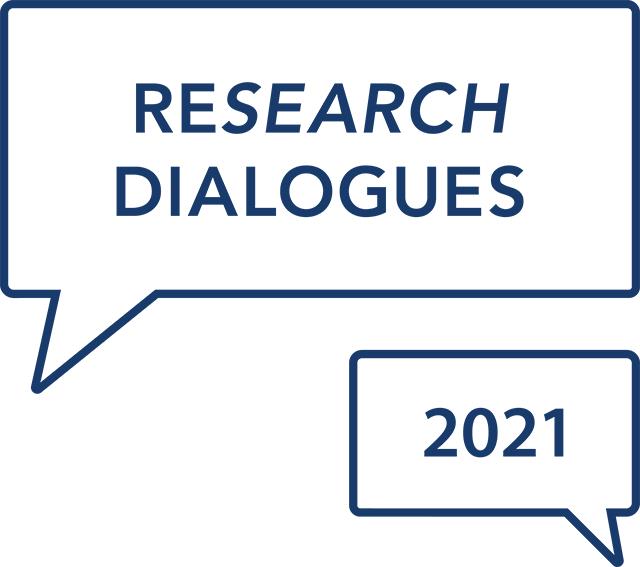Start Date
12-4-2021 10:00 AM
End Date
12-4-2021 10:00 AM
Publisher
University of Tennessee at Chattanooga
Place of Publication
Chattanooga (Tenn.)
Abstract
Upon entering the workforce or progressing into a graduate program, undergraduate students are expected to possess a number of both technical and psychological skills, as well as transferable skills, often termed “soft skills” (Appleby, 2003). In addition to coursework, experience through institutional research or undergraduate teaching may provide the necessary opportunities for development of transferable skills. Research presently supports the idea that undergraduate teaching assistants report the acquisition of professional skills through interactions with students and professors (Fingerson & Culley, 2001). These interactions and responsibilities may create similar effects, in terms of professional skill development, to those expected from performing undergraduate research, such as confident communication and leadership (Shalk et al., 2009). Through work as an undergraduate teaching assistant, it is thought that students will develop key knowledge, skills, and characteristics (KSC’s) identified as essential by potential employers through the U.S. Department of Labor’s Occupational Information Network (Appleby, 2019). The aim of the present study is to measure gains in teaching assistants’ perceptions of their transferable skills and professional abilities. The researchers have constructed a survey intended to assess students’ perceived competencies and expectations of competencies following completion of the teaching assistant experience. Over the course of three semesters the researchers have surveyed students enrolled in an undergraduate teaching assistant practicum. Students receive course credit and, in addition to gaining professional experience, engage in reflection intended to encourage self-evaluation and integration of professional abilities and goals. The constructed survey is based on the work of Appleby (2007; 2019) and it measures perceived competency in the following domains: integrity, attention to detail, dependability, initiative, flexibility, persistence, communication, goal setting, analytical thinking, self-control, stress tolerance and cooperation. Individual difference measures were also captured, for example, Need for Cognition (Cacioppo et al., 1984) and Brief Resilience Scale (Smith et al., 2008). The researchers also created additional questions to assess the impact of the global pandemic. We hypothesize that this scale will effectively capture gains in perceptions of transferable skills and professional abilities following a TA practicum course. We also hypothesize that individual differences, such as resilience and need for cognition may be correlated. This survey has potential for use with diverse groups of teaching assistants in various departments and educational institutions.
Date
4-12-2021
Document Type
posters
Language
English
Rights
http://rightsstatements.org/vocab/InC/1.0/
License
http://creativecommons.org/licenses/by/4.0/
Recommended Citation
Wells, Stephanie; Culver, Samuel; Swanson, Zachary; and Shelton, Jill Talley, "Those Who Teach Can Do: Skill Development Through Undergraduate Teaching". ReSEARCH Dialogues Conference proceedings. https://scholar.utc.edu/research-dialogues/2021/posters/4.
Those Who Teach Can Do: Skill Development Through Undergraduate Teaching
Upon entering the workforce or progressing into a graduate program, undergraduate students are expected to possess a number of both technical and psychological skills, as well as transferable skills, often termed “soft skills” (Appleby, 2003). In addition to coursework, experience through institutional research or undergraduate teaching may provide the necessary opportunities for development of transferable skills. Research presently supports the idea that undergraduate teaching assistants report the acquisition of professional skills through interactions with students and professors (Fingerson & Culley, 2001). These interactions and responsibilities may create similar effects, in terms of professional skill development, to those expected from performing undergraduate research, such as confident communication and leadership (Shalk et al., 2009). Through work as an undergraduate teaching assistant, it is thought that students will develop key knowledge, skills, and characteristics (KSC’s) identified as essential by potential employers through the U.S. Department of Labor’s Occupational Information Network (Appleby, 2019). The aim of the present study is to measure gains in teaching assistants’ perceptions of their transferable skills and professional abilities. The researchers have constructed a survey intended to assess students’ perceived competencies and expectations of competencies following completion of the teaching assistant experience. Over the course of three semesters the researchers have surveyed students enrolled in an undergraduate teaching assistant practicum. Students receive course credit and, in addition to gaining professional experience, engage in reflection intended to encourage self-evaluation and integration of professional abilities and goals. The constructed survey is based on the work of Appleby (2007; 2019) and it measures perceived competency in the following domains: integrity, attention to detail, dependability, initiative, flexibility, persistence, communication, goal setting, analytical thinking, self-control, stress tolerance and cooperation. Individual difference measures were also captured, for example, Need for Cognition (Cacioppo et al., 1984) and Brief Resilience Scale (Smith et al., 2008). The researchers also created additional questions to assess the impact of the global pandemic. We hypothesize that this scale will effectively capture gains in perceptions of transferable skills and professional abilities following a TA practicum course. We also hypothesize that individual differences, such as resilience and need for cognition may be correlated. This survey has potential for use with diverse groups of teaching assistants in various departments and educational institutions.


